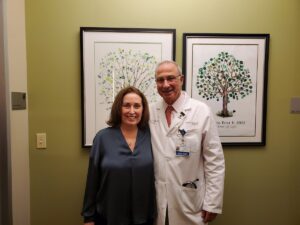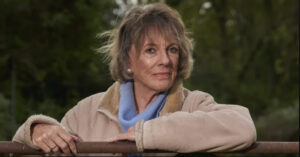In February, I watched my mother be euthanised. I travelled to Australia to see it. She was ready to go: she lived in a care home, and was in terrible pain from spine cancer and terribly embarrassed by her lack of bodily control.
Yet even though she was prepared, her death would still be messy: both for her and the family she left behind. Tensions between my siblings had escalated over the months, as we negotiated a difficult and stressful process. Let down by the officials who were meant to help us, it would be fair to say that assisted suicide killed my family along with my mother.
Mine isn’t just a personal tragedy. As euthanasia inches towards legality in Britain, with a private member’s bill on assisted dying potentially being debated in the Commons this month, we must think seriously about the logistics of death. Ignore it and we risk wreathing a nation in trauma — long after bereaved families leave their loved ones behind. For whether a longed-for release or slow and painful menace, death is a painful business.
The protocols, though, are simple enough. Following the Oregon Dignity in Death Act, passed in 1998, the Volunteer Assisted Dying Act in New South Wales encompasses 11 distinct steps and a host of safeguards. It is only available to over-18s who have an illness that will cause death within 12 months, or is causing suffering that cannot be relieved. Patients must undergo three assessments and write a declaration of their intentions.
Beyond these tight theoretical rules, however, the practicalities of VAD are less proscribed. For one thing, unlike in the US, assisted dying is free. And therefore more accessible. But far more important is the way in which amateur family members are roped into the protocols. My mother, as part of the process, nominated one of my sisters as her Key Person who would help her navigate the path to euthanasia.
This, though, was a difficult emotional burden for my sensitive sister, who struggled with poor health. To make matters worse, she was estranged from my other siblings. My mother selected this sister simply for her own ease. Another, more pragmatic sister had long been Evelyn’s Power of Attorney, but when new papers were drawn up, her name was misspelled and Mum wouldn’t sign incorrect legal documents. Instead of having the papers corrected, and waiting until her daughter could make the six hour-return drive to sign them, Mum was impatient.
Instead, she defaulted to the most convenient solution: her most available child. KP worked part-time, due to her health issues, while my other siblings work full-time. For my part, I live in the UK. At any rate, the newly bestowed Power of Attorney laid the groundwork for my KP sister being named as the primary support person. It was treated as a coup against my other sister who mum had always sought advice from on important matters or during a family crisis. In fact, that sister was the family vault on all serious matters. The animosity from one sister to the other was established years before my birth.
So I was commissioned as an intermediary, offering updates from my mother and KP to the other side of the family. I had also been passing along the various visiting times and dates of my siblings, so they could avoid each other at the care home. It was exhausting.
In theory, this muddle shouldn’t have mattered. After all, the rules also provide each family with a so-called VAD “coordinator”. These professionals are there to guide and support families through the challenging process. Empathy, it goes without saying, is key.
Alas, these theoretical safeguards were inadequate. After attending a couple of assessments, my sister was struggling to cope. Even the most resilient adult will find it challenging to accompany a parent who is arranging their own death. My mother, for her part, made the process trickier. Evelyn’s dark humour — once funny — was now hurtful as she took to saying that she was “being put down.”
That ominous sign would soon be echoed elsewhere. In January, Evelyn passed her third and final medical assessment, and was formally granted permission to undergo euthanasia. She was elated. “I feel like a huge weight has been taken off my shoulders,” I remember her telling me, “I haven’t felt this free in years.” She sounded so relieved and happy that of course I wondered whether she would go ahead with it. But the date was set. February 22, 2024, the wheels were set in motion — and the trouble really started.
In January, I took a flight from Heathrow to Chicago for a research assignment, in the belief that she would not go ahead with it. Between long flights and epic time differences, my role as intermediary collapsed, as my sister refused to share information with the other side of the family. Soon enough, I received frantic phone calls from other siblings desperate for crucial information. It seems that information is power and that information was being tightly held.
Now, my KP sister and one of her adult children had started to tell me when I could and couldn’t call my mother. They had established themselves as Mum’s guardians. Of course, I ignored their instructions, and Evelyn was annoyed by their interference — but ultimately did nothing to intervene.
I know, of course, that many families are dysfunctional — and VAD can’t be blamed for our internal squabbles. Yet the shallow, inflexible support offered families makes a miserable process far worse, triggering sleepless nights and agony for all of us.
Then, on February 15, just a week before she was due to die, staff shortages meant the date had to be postponed. A tough woman, not given to weeping, she crumbled. She could not stop crying. She was terrified of dying and had psychologically prepared herself for it, only to be undone by a bureaucratic bungle. Again, I asked her on the telephone why she was going ahead with it when she was clearly afraid. “I’m more terrified of living,” she told me.
The delay, though, did offer me the opportunity to say goodbye. So I flew out with my daughter, Ava, to Sydney. And my mother was fascinated by the granddaughter she hadn’t seen in so many years. I sat on the bed watching, mesmerised as they laughed and exchanged ideas. The deep interest Mum showed in Ava’s life made it even harder for me to reconcile her decision to be injected with a lethal dose of barbiturates the following day. The notion that she would be dead in 24 hours had not landed. It would not land.
But my mother was determined. And on February 23, we arrived at the hospital early in the morning. A social worker was assigned who, after a whispered conversation with my KP sister, promptly left the room and didn’t reappear. Unable to sit still, I roamed the sterile corridors until I noticed one of my nieces sitting alone in the public waiting area. Such was her distress I hardly recognised her. The social worker, though, was nowhere to be seen.
Evelyn arrived at midday, dosed up with painkillers, awake and chatting. Only now did it seem real. When we all entered her room, the VAD coordinator was there, having suddenly reappeared after weeks of silence. There she was at Evelyn’s bedside, acting like nothing had happened. Speaking only to my KP sister and Mum, she merely offered a nod of acknowledgement to the rest of us. As so often, our apparent invisibility felt crippling.
My mother was oblivious. And after she had whispered a private message of farewell to each person in the room, an anaesthetist ended her life. Just after 1pm on February 23, 2024. Nothing in Evelyn’s life became her like the leaving of it, such was her grace and courage.
In 2018, my father-in-law died a merciless death in England. The former country GP had Parkinson’s disease and had been in residential care for several years. When he could still make decisions, he made clear that he did not want to live if he could not eat or drink. Specifically, he refused a feeding tube.
When he was no longer able to swallow his death began. It took five days for him to die of thirst. I remain haunted by the harrowing nature of his departure.
So beyond the beauty of her passing, what have I taken from Evelyn’s death? Would I recommend it? Yes, in a sense I still would. I firmly believe NSW Health has opened a much-needed service for the terminally ill. But the system has a long way to go if it isn’t to destroy an ocean of other families. Even the most cohesive units can fracture under such immense strain. The trauma for our family will never be healed. My KP sister didn’t come to the scattering of my mother’s ashes. And none of my other siblings is in touch with her. Going through the VAD process has turned a once close sisterly bond into something uncomfortable and unwanted.
So as Britain begins its serious discussions over assisted dying, it must obviously consider ethics and morality. But equally important is to create an intelligent, reactive system of euthanasia, which cares for both individuals and their families. Failing to create that risks causing even more suffering — which would be an irony indeed.
Disclaimer
Some of the posts we share are controversial and we do not necessarily agree with them in the whole extend. Sometimes we agree with the content or part of it but we do not agree with the narration or language. Nevertheless we find them somehow interesting, valuable and/or informative or we share them, because we strongly believe in freedom of speech, free press and journalism. We strongly encourage you to have a critical approach to all the content, do your own research and analysis to build your own opinion.
We would be glad to have your feedback.
Source: UnHerd Read the original article here: https://unherd.com/



